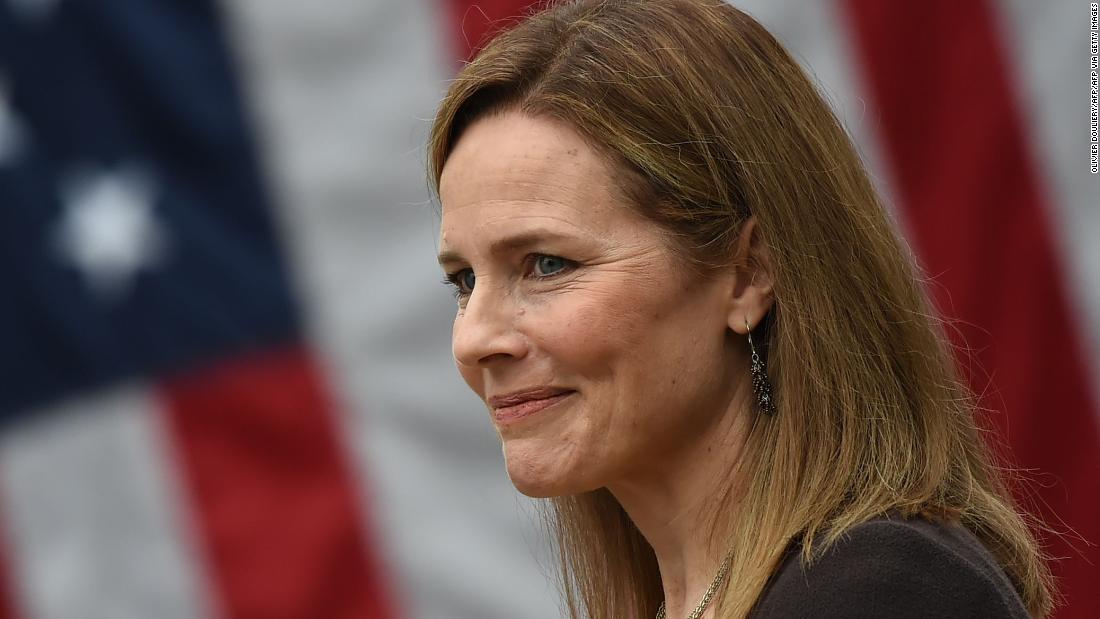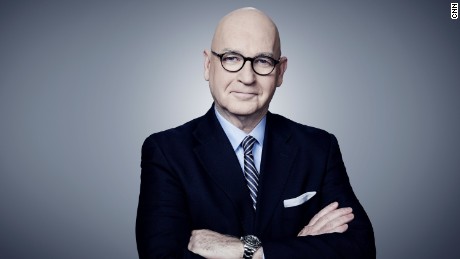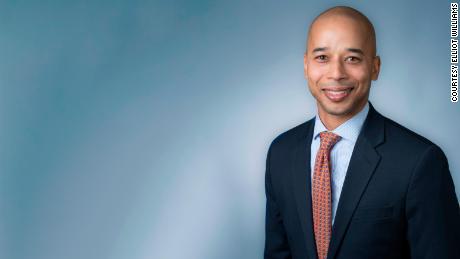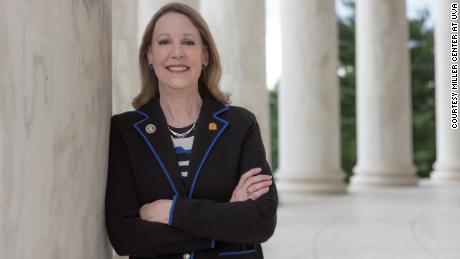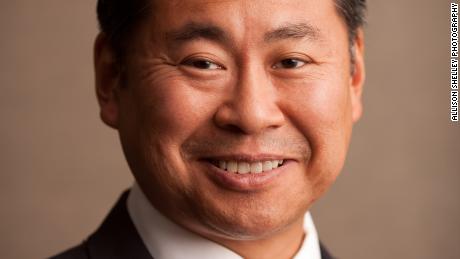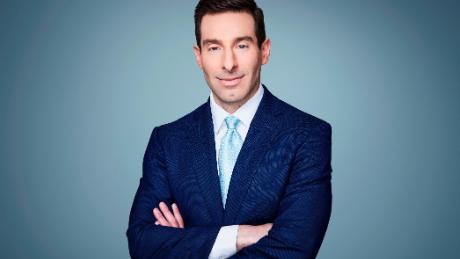Opinion: Amy Coney Barrett a perfect choice for half of America
What’s clear is that Ginsburg’s trailblazing career has paved the way for women with a range of judicial philosophies to sit on the federal courts. Barrett’s nomination to the Supreme Court is truly a triumph of Ginsburg’s equality project.
Elizabeth Slattery is an attorney in Washington who writes about the Supreme Court and the separation of powers.
Laura Coates: A judicial selection process that sets Lady Justice’s blindfold on fire
I’m uncomfortable.
Still, I’m uncomfortable with any judicial selection process that sets Lady Justice’s blindfold on fire. This political trend of justice shopping, a relentless search for a judicial choir member receptive to a presidential preacher, has lit the proverbial match.
Any directive to find a political puppet whose strings can be hidden by the judicial robe should horrify the American people and enrage the entire judiciary at the very suggestion. It should especially enrage a nominee who must now prove there are indeed no strings attached, particularly if that string is a requirement to overturn longstanding precedent on a political whim.
Is Trump the first to seek or even nominate a Supreme Court justice whose record, personal or ideological convictions are music to the ears of even the most partisan politician? Of course not. Democratic presidents have been as invested in the ideological composition of the court as Republican presidents. Frankly it’s baked into the constitutional recipe.
If the framers of the Constitution did not intend for this to be political, the president, an officeholder selected through a national election, would not have been chosen to nominate a justice, and the Senate would not have been expressly empowered to advise and consent on that nomination. Of course, if true representation were the goal, both chambers of Congress would have been included in the process.
In a presidential administration with a reputation for breaking norms critical to our republic, judicial shopping is one such norm that I actually wish would be broken.
The problem is not about the political novelty of a president acting in his party’s own interest but rather the continual erosion of the separation of powers. The erosion of even professed objectivity and the normalizing of the expectation that a Supreme Court justice’s opinion is a foregone conclusion — before a litigant has been identified, any case or controversy has arisen.
Talk about putting the cart before the horse.
During the confirmation process, each nominee is savvy enough to parrot impartiality. Each has refused and, in the case of Barrett, likely will refuse to reveal how they intend to decide cases in advance — and will state a deference to the concept of stare decisis, a concept whereby the judiciary respects Supreme Court precedent — hedging just enough to placate Senate Judiciary Committee members eager to interpret that hedge as a wink and a nod, and just enough to aggravate members who see the insincerity but have no recourse to prove it.
But a profession by a judge that she will be impartial hardly serves as a guarantee. And that’s precisely what Trump seems to be banking on: promise apolitical impartiality, deliver partisan predictability.
Paul Callan: Amy Coney Barrett has the head, heart and history to fill the SCOTUS seat
Amy Coney Barrett, a 48-year-old judge at the United States Court of Appeals for the Seventh Circuit in Chicago, has the head, heart, and history to be an outstanding Supreme Court justice.
Head: Judge Barrett is a summa cum laude graduate of Notre Dame Law School, where she served as the executive editor of the law journal. After graduation, she worked as a law clerk to Judge Laurence Silberman of the US Court of Appeals for the District of Columbia Circuit and later as a law clerk to the late Supreme Court Justice Antonin Scalia. These prestigious clerkships are probably among the most competitive in the US.
Heart: She is married to Jesse Barrett, also a Notre Dame Law School alum, and they have seven children under the age of 20. She is known to be an active participant at her children’s school activities. Her qualities of selflessness, empathy and heart are demonstrated in her and her husband’s decision to adopt two children from hurricane and strife-torn Haiti and to raise a child with Down Syndrome, her youngest Benjamin, who she has described as the children’s “favorite sibling.”
History: A jurist of formidable intellect, Barrett has authored more than 100 opinions, including some spirited dissents, since being named to the Seventh Circuit Court of Appeals in 2017. She is respected by conservatives as an originalist who looks to determine what the founders intended when they wrote the Constitution.
Sadly, the controversial decision of the Republicans to proceed with a Supreme Court nomination on the eve of the presidential election will undoubtedly inspire a bitter and rancorous response from Democrats at the Senate confirmation hearing. Nonetheless, given Barrett’s stellar credentials, strong sense of faith and big supportive family, she promises to be a worthy successor to another woman of intellect, empathy and heart, the Honorable Ruth Bader Ginsburg.
Elliot Williams: If Republicans insist on flouting norms, they should be prepared for the consequences
Judge Amy Coney Barrett should not be confirmed as a Supreme Court Justice.
This statement has nothing to do with Barrett’s record. It has everything to do with how the confirmation of any replacement for the late Justice Ruth Bader Ginsburg represents a flagrant insult to the basic norms of integrity and decency that should govern our country.
If Republicans insist on flouting norms and twisting the truth to get a nominee through, they should be prepared for the consequences that await them. At this point, they’ve forfeited any right they will have to complain.
Barbara Perry: A Catholic court? What Amy Coney Barrett’s nomination means
Presuming Senate confirmation for President Donald Trump’s third Supreme Court nomination, Judge Amy Coney Barrett would become the sixth Roman Catholic on the nation’s highest court, joining John Roberts, Clarence Thomas, Samuel Alito, Sonia Sotomayor, and Brett Kavanaugh. Neil Gorsuch was raised Catholic but attends an Episcopal church. Stephen Breyer and Elana Kagan are Jewish.
For most of the court’s history, it has been distinctly Protestant. As Catholic immigrants arrived on our shores, especially in the mid- to late-19th century, however, presidents saw an opportunity to court their votes by naming one of their faith to the high bench.
Usually these justices passively represented their religions, simply making the court look slightly more like America, though no racial minorities or women would be nominated until 1967 and 1981, respectively. After John F. Kennedy’s 1960 election as the first Catholic president, his co-religionists felt more included in government, and the “Catholic seat” concept ebbed.
By 1988, three Catholics served (William Brennan, Antonin Scalia and Anthony Kennedy), and they represented three distinct segments of the ideological spectrum — liberal, conservative, and moderate, which informed their positions on the leading cultural controversy of their time. Brennan supported Roe v. Wade, Scalia wanted it overturned and Kennedy shaped a middle ground, upholding the right to abortion but allowing for more regulations.
Under Ronald Reagan, George W. Bush and Donald Trump, a nominee’s Catholic affiliation became shorthand for his or her desire to repeal reproductive rights. If and when Barrett takes her seat on the Supreme Court, that 40-year-old Republican policy goal may well come to fruition.
Shan Wu: Trump is sending a clear message: Make America White again
What strikes me about President Donald Trump’s choice of Amy Coney Barrett is who he didn’t pick. On his short list were several persons of color: Kentucky Attorney General Daniel Cameron, former Solicitor General Noel Francisco, and sitting judges James Ho, Amul Thapar and Barbara Lagoa.
But he didn’t choose her or any person of color.
Instead, President Trump reaffirmed his commitment to reject diversity and inclusion by choosing a white Catholic during an unprecedented moment of racial awareness in America. His message could not be clearer: Make America White Again.
There’s little danger here of a Justice Neil Gorsuch-like streak of independent thinking ruining an otherwise perfectly good replay of the Supreme Court’s Bush v. Gore decision that awarded the presidency to George W. by judicial fiat. No, she is a jurist who can be depended on to elevate political ideology over legal analysis.
In picking Barrett, Trump promises his base a return to an earlier, whiter, more Christian America. So it was. So it shall be.
Elie Honig: Obamacare could be the first casualty of a newly aligned court
The first and most important thing you need to know about President Donald Trump’s selection of Amy Coney Barrett as the next justice of the Supreme Court is this: 6-3.
Ginsburg understood perhaps better than anyone that Supreme Court decisions impact real lives. We could soon see that play out in a very tangible way.
Elie Honig is a CNN legal analyst and former federal and state prosecutor.
![]()


